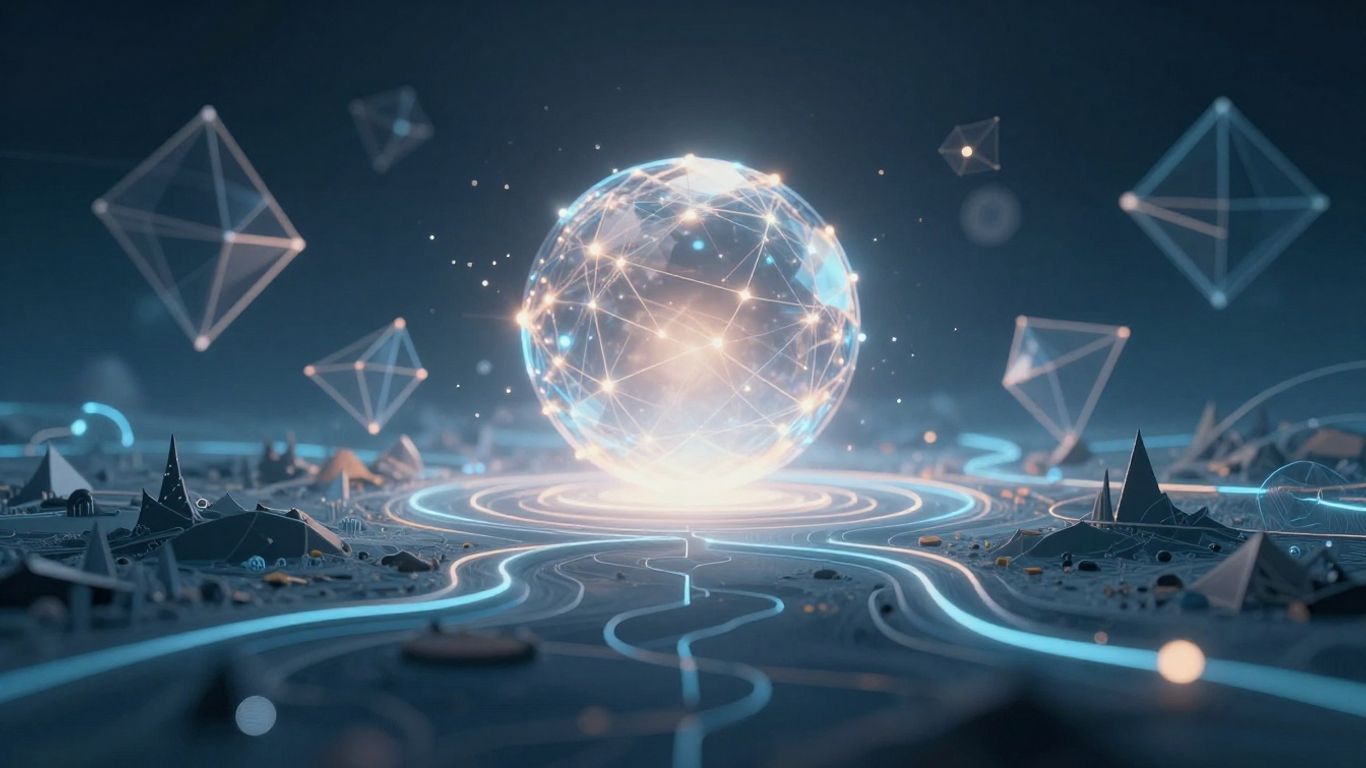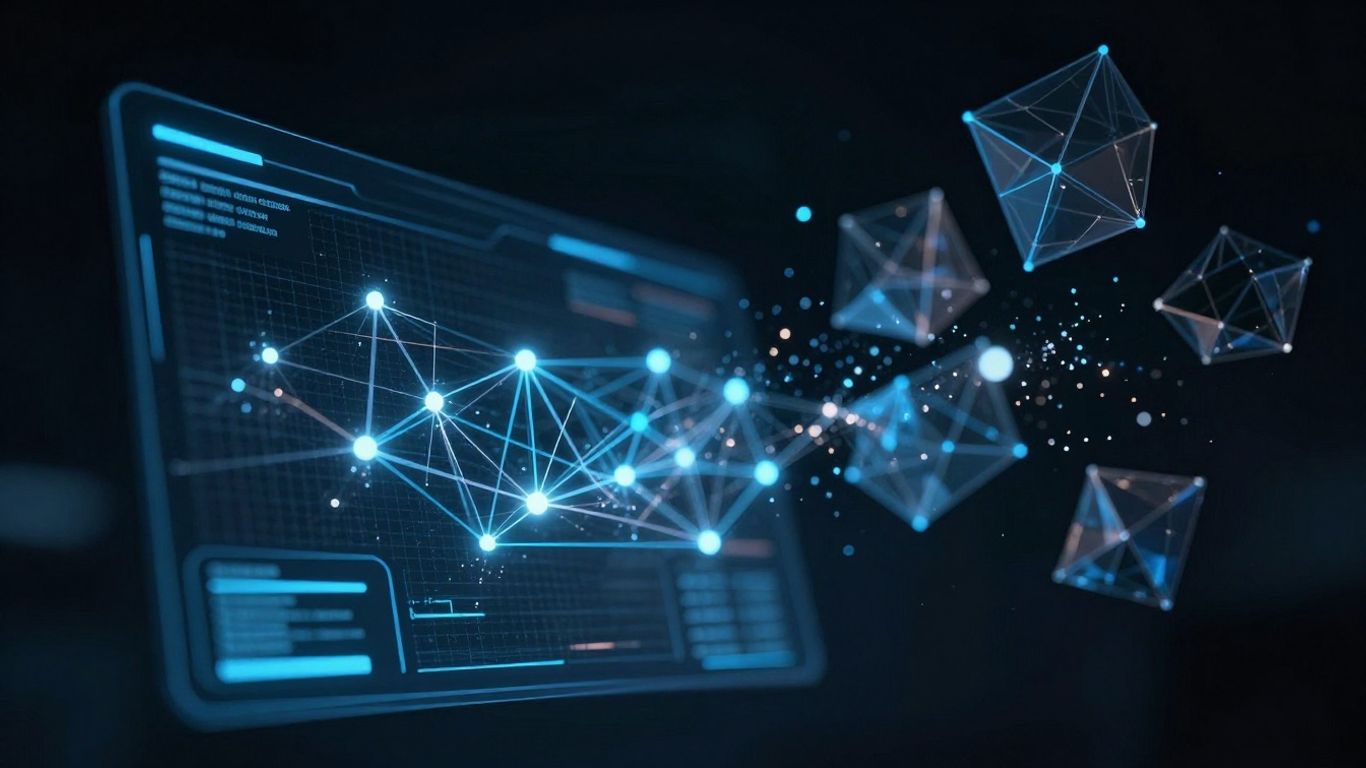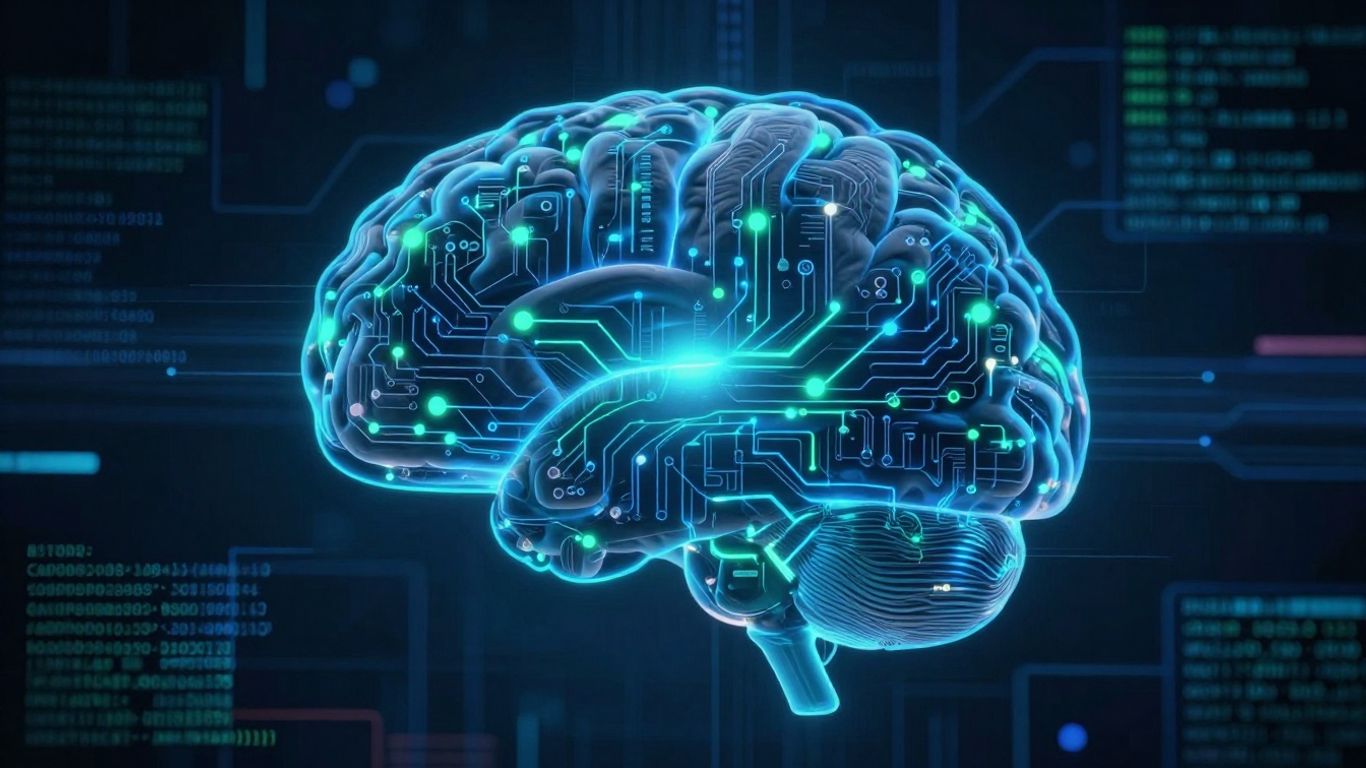[ newsletter ]
Stay ahead of Web3 threats—subscribe to our newsletter for the latest in blockchain security insights and updates.
Thank you! Your submission has been received!
Oops! Something went wrong. Please try again.
Revolutionize decentralized systems with blockchain-based AI agents. Enhance security, automate tasks, and gain insights with advanced AI.





It feels like everywhere you look these days, there's talk about AI and blockchain. They're both pretty big deals on their own, but when you put them together? That's where things get really interesting. We're seeing how blockchain-based AI agents are starting to change the game for decentralized systems. Think about it: you've got the security and transparency of blockchain, and then you add in smart, autonomous AI agents that can actually do things. It's a combo that's making a lot of waves, especially when it comes to making things more secure and automated.
It's pretty wild how fast things are changing in the tech world, right? We're seeing AI and blockchain, two massive forces, start to really work together. Think of it like this: AI is the smart brain that can figure things out and make decisions, and blockchain is the super secure, transparent backbone that keeps everything honest. When you put them together, you get something pretty special.
So, what's blockchain all about in the first place? At its core, it's a digital ledger, like a shared notebook, that records transactions across a bunch of computers. This makes it really hard to cheat or change things later because everyone has a copy. In decentralized systems, this means you don't need a middleman, like a bank, to make sure things are legit. You can trust the system itself. It’s this built-in trust and transparency that makes blockchain such a good partner for AI agents.
Here's a quick look at how it works:
This setup means data is out in the open, can't be easily messed with, and smart contracts – those self-executing agreements – can run automatically. It’s a solid foundation for anything needing trust and automation.
Now, AI agents are getting pretty sophisticated. They're not just simple programs anymore; they're autonomous systems that can learn, make decisions, and actually do things with minimal human input. We're talking about things like chatbots that can hold a conversation, trading bots that manage investments, or even agents that can analyze complex data sets. They're becoming the 'brains' that can process information and optimize how things work.
These agents can be categorized in a few ways:
It's this ability to act autonomously and intelligently that makes them so interesting for decentralized systems.
When you combine AI agents with blockchain, you get a powerful boost for decentralized systems. AI agents can tap into the secure, transparent data on the blockchain to make even smarter decisions. Imagine an AI agent analyzing market trends using verified blockchain data to execute trades automatically – that’s a big step up from just guessing.
The integration allows AI agents to operate with a higher degree of certainty, as the data they rely on is immutable and verifiable. This reduces the risk of errors and manipulation, leading to more reliable outcomes in decentralized operations.
This synergy means:
Ultimately, this combination is paving the way for more efficient, secure, and intelligent decentralized applications. It's a really exciting time to see how these technologies are shaping the future of how we interact online and manage digital assets, making things like blockchain auditing more robust.
When we talk about making decentralized systems safer, AI agents working with blockchain are a pretty big deal. Think about it – these smart systems can actually watch over code, find problems before they become major issues, and even fix them on their own. It’s like having a super-vigilant security guard who never sleeps and knows exactly what to look for.
One of the most exciting parts is how AI agents can automatically scan smart contracts for weaknesses. They’re trained on vast amounts of code and known exploits, so they can spot things like reentrancy bugs or improper use of variables that a human might miss, or at least take much longer to find. Once a vulnerability is found, some advanced agents can even suggest or deploy fixes in real-time. This means projects can patch up security holes almost instantly, preventing potential losses. It’s a huge step up from traditional audits, which can take weeks and still miss things.
Auditing smart contracts is super important, but it's also a bottleneck. Manual audits are thorough but slow and expensive, which is tough for new projects. AI agents can speed this up dramatically. Imagine an AI that can process an entire DeFi protocol in a single scan, identifying vulnerabilities with high accuracy – we're talking speeds thousands of times faster than manual checks and a fraction of the cost. This makes professional-level security accessible to more projects, leveling the playing field and reducing the overall risk in the ecosystem.
Beyond just finding bugs in code, AI agents can act as a constant monitoring system. They can analyze transaction patterns across different blockchains, looking for suspicious activity like phishing attempts, fraudulent DApps, or known scammer wallets. By connecting to blockchain data, these agents can build a picture of potential threats as they emerge. This allows for proactive measures, like flagging risky transactions or warning users about newly identified scam sites, before significant damage is done. It’s about staying ahead of the bad actors, not just reacting after the fact.
So, what makes these advanced AI agents so special when they're working with blockchain? It's not just about doing one thing; it's about how they can team up and handle bigger, more complicated jobs. Think of it like a group project where everyone has a specific role, but they all work together to get the best result.
These agents aren't lone wolves. They're designed to work in teams, sort of like a digital workforce. Each agent can have its own specialty, like one agent might be really good at analyzing code, another at spotting suspicious patterns, and a third at managing communication between different parts of a decentralized system. When they collaborate, they can tackle tasks that would be impossible for a single agent, like performing a full security audit on a complex decentralized application (dApp) or managing a decentralized autonomous organization (DAO) with many moving parts. This teamwork means they can process more information, make better decisions, and execute tasks more efficiently. It’s like having a whole team of experts working 24/7.
What's really neat is that these agents can be customized. You can set them up with specific tools and data they need to do their job. For example, an agent focused on financial analysis might get access to real-time market data and historical trading information, while an agent focused on smart contract security would get access to code repositories and known vulnerability databases. This personalization means they're not just general-purpose tools; they're specialized assistants ready for specific challenges. This ability to access and use different tools makes them incredibly flexible and powerful for a wide range of applications within decentralized systems. It’s about giving each agent the right equipment for the job.
Beyond just reacting to problems, these advanced agents can actually predict them. They can look at patterns in data, both on and off the blockchain, to figure out what might go wrong before it actually happens. This includes things like identifying potential scams, predicting market shifts, or even spotting unusual activity that could signal a security breach. They can also perform a 'digital footprint' check, which is like a background check for digital entities, helping to verify identities and understand the history of an address or project. This proactive approach is a game-changer for security and risk management in the decentralized world. It’s like having a crystal ball for potential dangers.
The ability of AI agents to process vast amounts of data and identify subtle patterns is what sets them apart. They can sift through code, transaction histories, and network activity to uncover risks that human analysts might miss, especially given the sheer volume of information in the blockchain space. This makes them invaluable for tasks requiring deep analysis and foresight.
Here's a quick look at what these agents can do:
This level of sophistication means AI agents are becoming indispensable for building more secure, efficient, and intelligent decentralized systems. They are truly revolutionizing how we approach security and operations in Web3, making it easier for users to perform due diligence and for projects to secure their operations. For instance, tools like Veritas are already demonstrating how AI can process audits much faster than humans, making blockchain security more accessible.
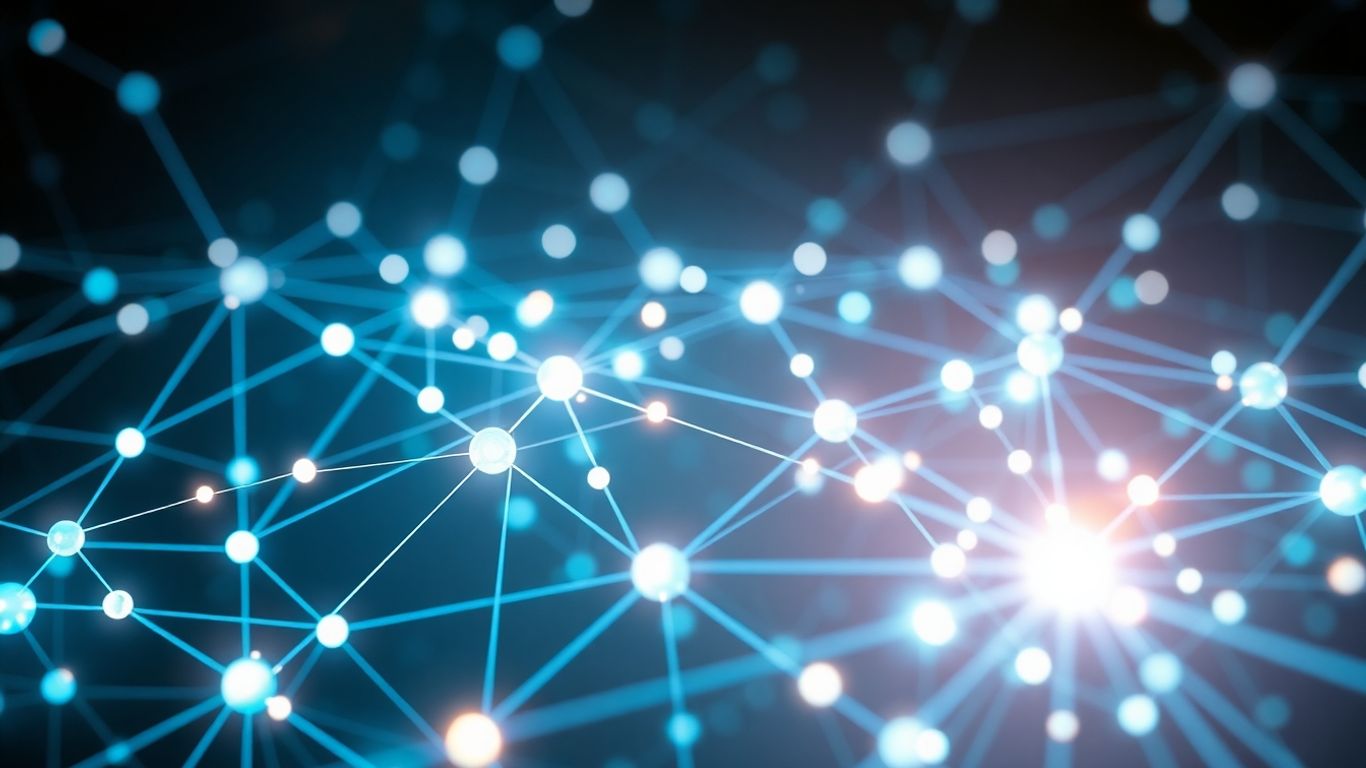
It's not just about the tech itself; it's about how this tech actually helps people and the projects they're building. Think about it: most folks getting into crypto or new blockchain projects aren't security experts. They need tools that make sense and actually protect them.
For the average user, doing your homework on a new project can feel like a full-time job. You're sifting through whitepapers, checking social media, and trying to figure out if a project is legit or just another way to lose your money. AI agents can really change that. They can quickly scan a project's digital footprint, analyze smart contract code for red flags, and even check if the team has a history of shady dealings. It's like having a super-smart assistant who does the heavy lifting for due diligence.
The goal here is to democratize security information. Instead of needing to be a blockchain detective, users get clear, actionable insights that help them make better decisions about where to put their time and money.
Getting a professional smart contract audit is super important, but it's often too expensive and takes too long for new projects. This is where AI agents shine. They can perform automated audits much faster and at a fraction of the cost of traditional methods. This means even small teams with limited budgets can get their code checked for vulnerabilities before launching.
Beyond just finding problems, AI agents can also help provide peace of mind. Some systems offer insurance against smart contract exploits, meaning if something goes wrong, there's a safety net. Plus, imagine having a permanent, verifiable record of a project's security status right on the blockchain – like a digital badge of honor. This
So, how do these blockchain-based AI agents actually work under the hood? It's not just magic, there's some pretty neat tech making it all happen. Think of it like building a really smart robot that can also interact with a secure, shared ledger. We're talking about advanced AI models, but also how they connect and operate within the decentralized world.
When we talk about AI agents analyzing smart contracts or blockchain data, they need some serious brainpower. This often involves using sophisticated AI model architectures, like those based on transformers. These models are trained on massive amounts of code, including smart contracts written in languages like Solidity. They learn patterns, identify potential vulnerabilities, and can even suggest fixes. For instance, models like Qwen2.5-Coder, with billions of parameters, are optimized for understanding and generating code. They use techniques like multi-query attention and rotary positional encoding to handle long sequences of code efficiently, which is super important when you're looking at complex smart contracts.
The accuracy of these AI models is key. Some are achieving over 94% accuracy in detecting vulnerabilities, which is a huge leap from older methods.
Smart contracts and blockchain transactions can get pretty lengthy and complex. To really get a handle on them, AI agents need to process a lot of information at once. This is where long-context processing comes in. Models that can handle context lengths of tens of thousands, or even over a hundred thousand tokens, are essential for thorough audits. This allows the AI to look at an entire DeFi protocol or a large smart contract without losing track of earlier parts. It's like reading a whole book to understand the plot, rather than just a few pages.
The blockchain space is always changing, with new exploits and vulnerabilities popping up regularly. So, the AI agents powering these systems can't just be static. They need to learn and adapt. This is achieved through continuous training and fine-tuning. By feeding the AI new data on vulnerabilities, exploits, and successful fixes, the models can improve their detection capabilities over time. This adaptive learning means the agents get smarter and more effective at securing decentralized systems as the threat landscape evolves. It's a constant cycle of learning, testing, and refining to stay ahead of bad actors.
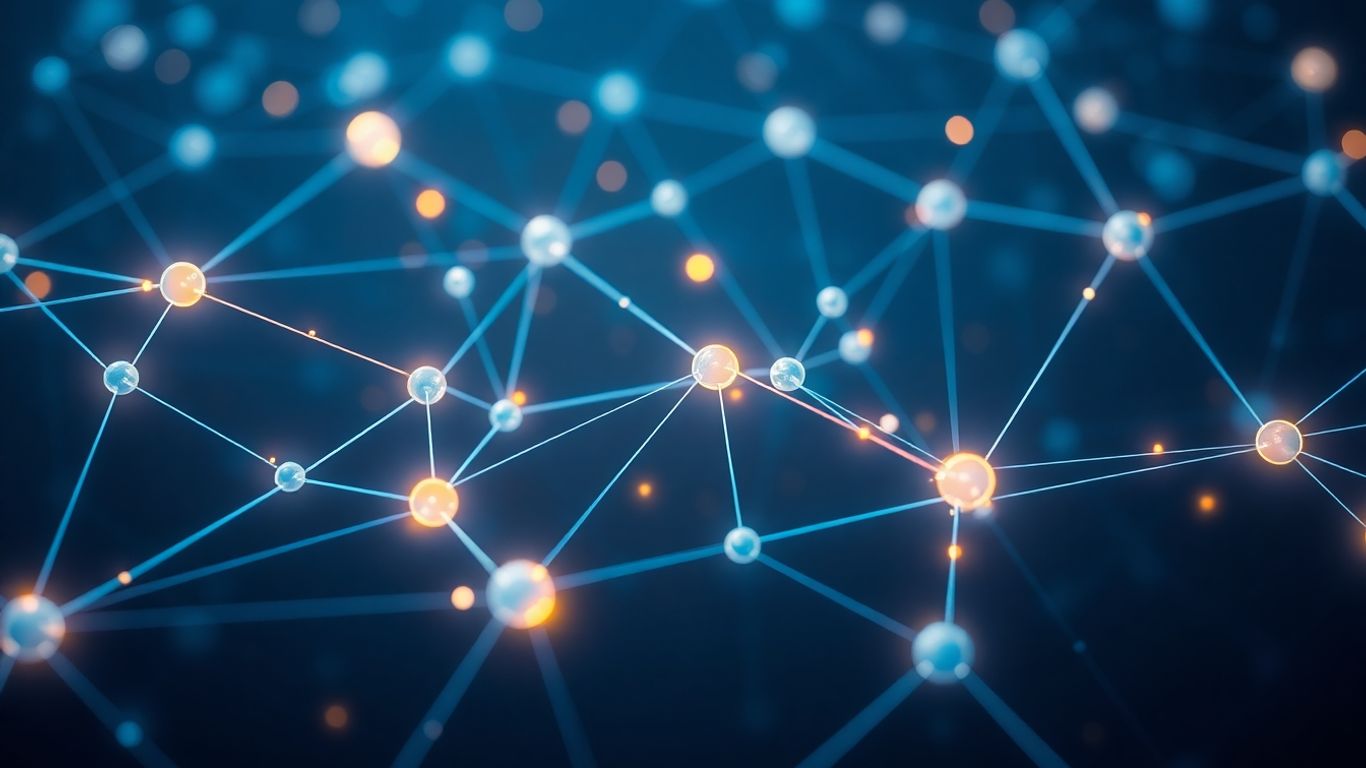
While the idea of blockchain-based AI agents is exciting, we're not quite out of the woods yet. There are definitely some hurdles we need to clear before this tech becomes as common as, well, using your phone. For starters, scalability is a big one. Blockchain networks can get bogged down pretty easily, and adding complex AI processes on top of that? It can really slow things down. Think about trying to run a super-fast race car on a road that’s constantly getting more traffic – it’s going to hit some snags.
One of the main issues is how to make these systems handle a lot of activity without breaking a sweat. We're seeing solutions like Layer-2 scaling, which basically moves some of the processing off the main blockchain, kind of like a side road to ease congestion. Also, breaking down AI tasks into smaller, more manageable pieces that can be processed in different places is another approach. Getting these AI agents to talk smoothly with different blockchain networks is also tricky. We need common languages, or protocols, so they can all understand each other, no matter what blockchain they're on. It’s like making sure everyone speaks the same language at an international conference.
Then there are the ethical questions. Since these AI agents can act on their own, who's responsible when something goes wrong? If an AI agent makes a bad call that costs someone money, figuring out who to blame isn't straightforward. Plus, we have to watch out for bias. If the data used to train these AI agents has biases, the agents might end up making unfair decisions. We need to make sure these systems are fair and transparent. Ensuring accountability and fairness in autonomous decision-making is paramount for building trust.
Here’s a quick look at some key ethical points:
The drive for automation is strong, but we must remember that human oversight remains a vital component. Relying too heavily on automated systems without proper checks and balances could lead to unforeseen issues that are difficult to correct.
Looking ahead, the potential is huge. Imagine AI agents not just auditing code, but actively helping to build more secure and efficient decentralized applications. We could see AI agents managing decentralized organizations (DAOs) more effectively, making data-driven governance decisions, and even predicting market trends with incredible accuracy. The goal is to create a more intelligent, self-regulating decentralized ecosystem. Projects are already showing impressive results, with AI models achieving high accuracy in detecting vulnerabilities, processing audits much faster than humans, and significantly cutting costs. This suggests a future where advanced security is accessible to everyone, not just big players. The integration of AI into blockchain is really about creating smarter, more robust decentralized systems for the future, making things like AI-powered crypto projects more reliable and secure.
So, we've seen how AI agents and blockchain can really work together to make decentralized systems better. It’s not just about making things faster, but also more secure and easier for everyone to use. Think about how this could change things for regular users trying to stay safe online, or for new projects that need solid security without breaking the bank. The tech is still growing, and there are definitely hurdles to jump, like making sure everything scales up properly and keeping things fair. But the progress is clear. We’re looking at a future where these smart, automated agents, backed by the trust of blockchain, could really be the key to a more reliable and advanced digital world. It’s an exciting time to watch this space develop.
Imagine using smart computer programs, called AI agents, to help run things without a central boss. Blockchain makes sure all the actions these agents take are recorded safely and can't be changed. This makes everything super clear and trustworthy. It's like having a super-smart, honest helper that everyone can see is doing its job right.
Blockchain acts like a super secure diary for everything the AI agent does. Because the diary's pages can't be ripped out or changed, it's really hard for anyone to mess with the AI's actions or the information it uses. This stops cheating and makes sure the AI is always acting as it should.
Yes, they can! Think of an AI agent like a security guard that can also fix broken locks. If it finds a weakness or a problem, it can actually fix it automatically, right away. This means systems can keep running smoothly without needing a person to step in every time something goes wrong.
Exactly! Instead of just one AI doing everything, we can have many AI agents, each with its own specialty, like a team of experts. They can talk to each other and work together on big, complicated jobs. It’s like having a group chat where different people handle different parts of a project to get it done faster and better.
It can be tricky, like putting together a really complex puzzle. Making sure the AI agents can talk to the blockchain smoothly and efficiently, especially when lots of people are using the system, is a big challenge. But smart people are finding ways to make it work better and faster.
The main goal is to make decentralized systems much safer, more efficient, and easier for everyone to use. For example, it can help check if new crypto projects are safe for people to invest in, or make sure online agreements run perfectly. It’s all about using smart technology to build a more trustworthy digital world.
